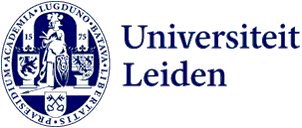
Seeking new concepts to treat diseases
Drug development is a long process that begins with fundamental research. The Leiden Academic Centre for Drug Research (LACDR) is considered to be one of the top institutes in the world. Scientific Director Hubertus Irth: ‘We test substances and look for new concepts for treating disease.’

The LACDR is one of the Faculty of Science’s eight research centres. It conducts research but ‘the market’ is not far away. The LACDR is surrounded by the LUMC and the pharmaceutical and related companies in the Bio Science Park. Drug development, Irth says, is by definition interdisciplinary. ‘The goal is not the further development of chemistry or any other discipline. The goal is the medicine, or rather: the control of the disease. Everything is in service to that. We need many disciplines to do that. Traditionally chemists, biologists, mathematicians and computer scientists. And nowadays AI specialists as well.’
Research at the LACDR often begins with a new technique or concept. ‘That concept is important. We are ahead of the pharmaceutical industry and are often not yet concerned with its application and market opportunities. We have an idea that a certain chemical might work for a disease. Then we test the effect and whether it is toxic.’
Discovery stage
From the very first research on a potential new drug, much can still go wrong. As a result, it takes an average of 12 years before a successful launch can be celebrated. Irth’s centre focuses on the early stage of development. ‘What we call the discovery stage.’ This can take as long as six years. Only when a substance has proven to work, to be safe, to allow for reasonably low-level administration, and the drug has been patented, is it tested on humans. And only then, in the medical and clinical phase, do the doctors become involved.
The ambition in that discovery phase is to use AI for more and more testing. That field is set to boom, says Irth, and will result in ever-improving computational and modelling methods. Discovering early on whether a drug will have the desired effect not only saves time, money and laboratory animals but also a lot of frustration, he says. ‘It can be very tough for a researcher when a drug you’ve been working on for five years doesn’t make it.’
Dare to dream
Irth does not want to make claims about the success rate of new drugs or for which diseases the cure rate will be better in whatever timeframe. ‘You have to dare to dream but we do have to work with facts. I’m not going to make big claims about us being able to cure diseases like cancer or Alzheimer’s in a certain amount of time.’ What he can say: ‘We are trying to contribute to the best possible medicines. We are always looking for new concepts, such as cell therapy or personalised medication, to fight a disease.
Read the full article in the October edition of the Leidraad alumni magazine (in Dutch, p. 22-23). The magazine also features other articles on drug development.
Text: Job de Kruiff
Photo: Taco van der Eb
